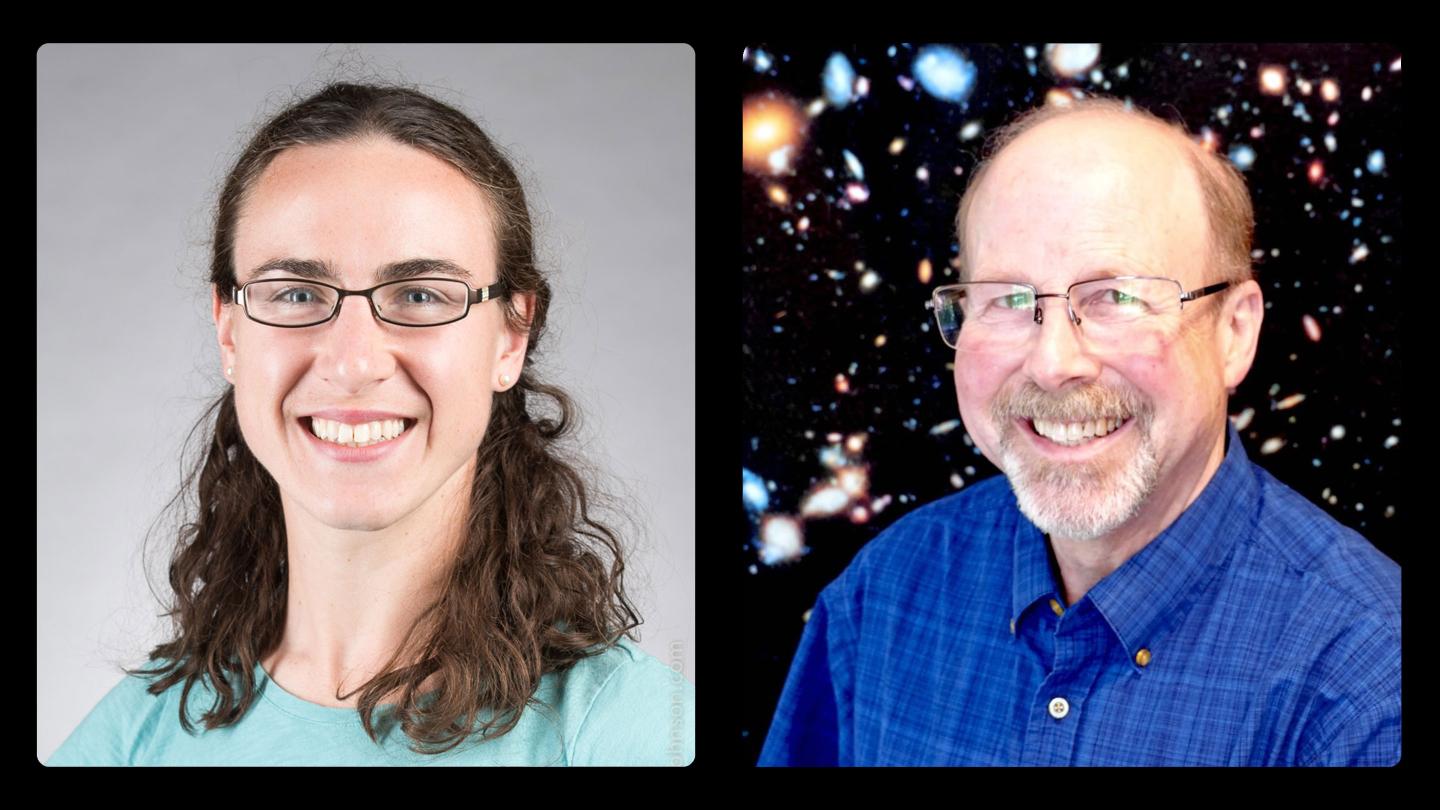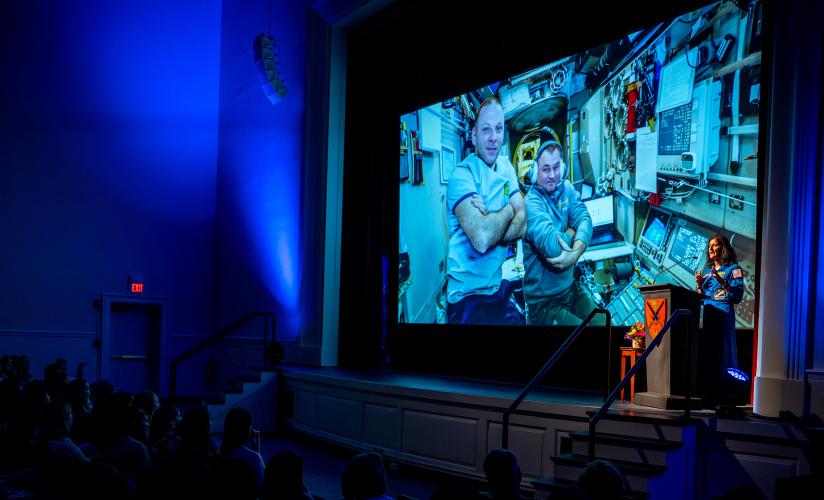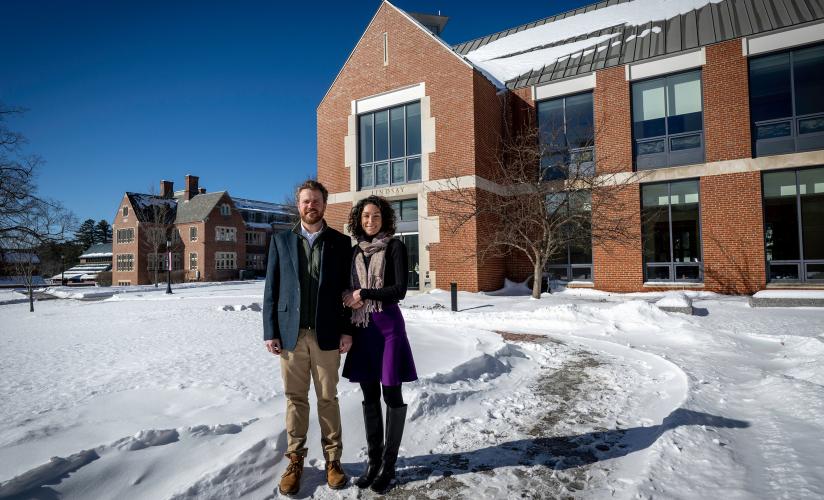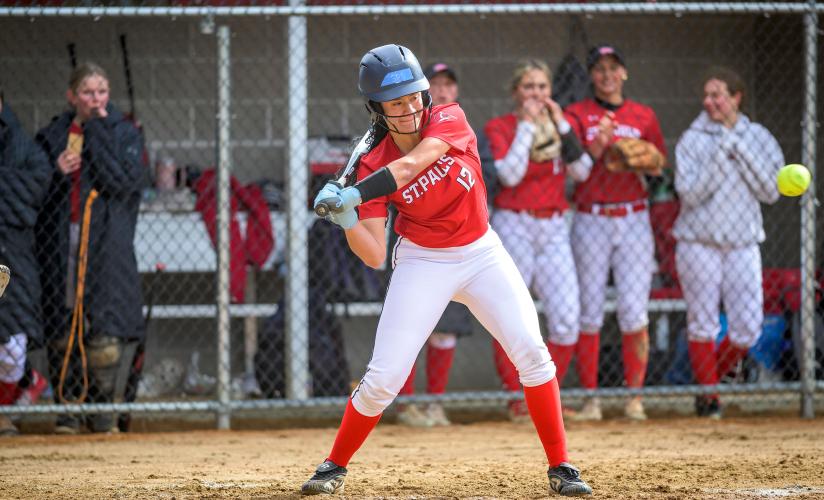

St. Paul’s School kicks off Excellence in Character and Scholarship series in conversation with space experts Harry Ferguson ’77, P’06,’10 and Alison Crocker ’02
BY KRISTIN DUISBERG
Alison Crocker’s childhood interest in astronomy was cemented when she took the two courses in the subject offered during her years at St. Paul’s School and had an aha moment about Fraunhofer sodium D lines at the stellar observatory. For Harry Ferguson, a Cricket Holiday walk with a formmate revealed their shared interest in the subject and led to a connection with Science Teacher Walter Hawley, who introduced him to the School’s astronomy club. For the two space scientists, SPS served as the launching pad for careers that have led to new discoveries and a deeper understanding of the universe — topics they touched on with Rector Kathy Giles and Science Teacher Rick Pacelli during their Nov. 1 conversation to kick off the School’s 2023-24 webinar series: Excellence in Character and Scholarship.
Ferguson, who earned his undergraduate degree from Harvard and a Ph.D. in physics and astronomy from Johns Hopkins, is an astronomer at the Space Telescope Science Institute and has worked on both the Hubble and the James Webb space telescopes. Crocker, who earned her undergraduate degree from Dartmouth and then a D.Phil from Oxford University, where she was a Rhodes Scholar, teaches and conducts research on the physics of star formation at Reed College. As eminent practitioners in a field that’s all but synonymous with intellectual rigor, much of the conversation centered on their academic achievements —including Ferguson’s contributions to scientists’ current understanding of the geometry of the universe and Crocker’s work to identify the rate at which stars are formed in early-type galaxies. But as Giles emphasized at the beginning of the webinar, not only was “the pursuit of excellence in character and scholarship” a line from the School’s mission statement, it also was part of the School’s DNA. Accordingly, both panelists spoke about the mentors who had helped shape them and reflected on a question from Giles about the value of space exploration.
In explaining the intrinsic value of space exploration, Ferguson noted that humans spend money first on basic needs for survival. “But if all were doing is surviving, what do we do? There’s everything else that makes us human: art, music… science for science’s sake and discovery, and that sort of collectively gives us a little more meaning,” he said. “And so in some sense maybe the pure science pursuit is almost closer to religion, whether you believe in a deity or not. It’s like a pure something for the sake of something beyond just surviving.”
For her part, Crocker noted that space research plays an important role in understanding climate change and being the best stewards possible of our planet for future generations. “I am glad I’m not the one to turn the knob of exactly how the money should be used and where, but there’s got to be a balance,” she said.
Later, Giles posed what has become a staple — and often the most resonant — question of the School’s webinar series: “Looking back through the lens of what you now know, what advice would you give your SPS self?” she asked both panelists as well as Pacelli. Crocker — a lifelong athlete — said she’d take a second dance course and be more mindful about treasuring her time with friends. Ferguson, who joined SPS as a Second Former, said he might help his eighth-grade self become more adept at interacting with his peers and take advantage of more of the many opportunities SPS provides. Pacelli noted that he might take more art classes and “let failure be part of my education instead of a thing to be sad about.”
The wide-ranging conversation was broadcast from the School’s solar observatory on the top floor of the Lindsay Center for Mathematics and Science, with Crocker joining in from her office in Portland, Oregon, and Ferguson from Baltimore. Among the listeners who tuned in were members of GAINS — the School’s club for Girls Advancing in STEM — and it was to them as well as other students that Crocker, with her teacher’s hat on, addressed a point about bringing a creative lens to STEM subjects. “It can be hard at times to practice that creative endeavor because there are so many things that we want to teach you, and there are so many skills we want you to gain,” she said. “But try to keep the curiosity muscle very active for the cool independent project… for the everyday study. Try to use it as much as possible, because that’s what STEM is really all about.”
The Excellence in Character and Scholarship series will continue in 2024, with the next webinar scheduled for Jan. 10.



